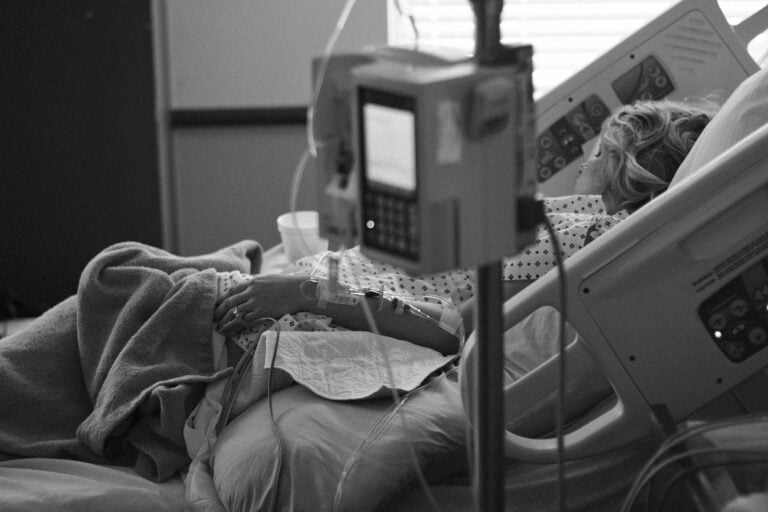In today’s rapidly evolving healthcare landscape, payer reimbursement is a critical factor in the successful implementation and sustainability of remote patient monitoring programs. As healthcare providers strive to deliver high-quality care while managing costs and improving patient outcomes, understanding and optimizing private payer reimbursement strategies for remote patient monitoring programs is paramount.
In this article, we will delve into the intricate realm of private payer reimbursement and explore key strategies to optimize reimbursement for remote patient monitoring programs. From navigating payer policies to demonstrating clinical efficacy, join us as we uncover the essential elements of maximizing reimbursement in the realm of remote patient monitoring.
Understanding Private Payer Reimbursement
Private payers, including insurance companies and managed care organizations, play a significant role in reimbursing healthcare providers for services rendered. Unlike government payers such as Medicare and Medicaid, which have established reimbursement guidelines, private payers often have varying policies and criteria for reimbursement.
When it comes to remote patient monitoring programs, private payer reimbursement can be influenced by factors such as the specific services provided, the clinical efficacy of the program, and the cost-effectiveness of remote monitoring compared to traditional care models. Healthcare providers must navigate this complex landscape to ensure optimal reimbursement for their remote patient monitoring initiatives.
Navigating Private Payer Policies
As healthcare providers delve into the realm of remote patient monitoring, understanding and navigating private payer policies become paramount. Here’s a breakdown of key points:
- Understanding the intricacies of private payer reimbursement policies is crucial for healthcare providers.
- Private payers, including insurance companies and managed care organizations, have varying reimbursement guidelines.
- Navigating these policies involves familiarizing oneself with coverage criteria, billing requirements, and reimbursement rates.
- Healthcare providers must align their remote patient monitoring programs with private payer policies to optimize reimbursement opportunities.
- By navigating private payer policies effectively, providers can ensure the financial sustainability of their remote patient monitoring initiatives.
Key Strategies for Maximizing Private Payer Reimbursement
Comprehensive documentation
Robust documentation is essential to demonstrate the clinical necessity and effectiveness of remote patient monitoring programs to private payers. Healthcare providers should ensure that all patient interactions, monitoring data, and interventions are thoroughly documented in the patient’s medical record. Clear documentation helps justify reimbursement by illustrating the value of remote monitoring in improving patient outcomes and reducing healthcare costs.
Aligning with payer policies
Understanding and aligning with payer policies is critical to maximizing reimbursement for remote patient monitoring services. Healthcare providers should familiarize themselves with each payer’s coverage criteria, billing requirements, and reimbursement rates for remote monitoring programs. By adhering to payer guidelines and submitting claims accurately, providers can avoid claim denials and optimize reimbursement.
Demonstrating value proposition
Demonstrating the value proposition of remote patient monitoring programs is essential to gaining buy-in from private payers and securing reimbursement. Healthcare providers should emphasize the benefits of remote monitoring in improving patient outcomes, enhancing care coordination, and reducing healthcare costs. By showcasing the value proposition of remote monitoring, providers can make a compelling case for reimbursement to private payers.
Evidence-based practice
Private payers are increasingly focused on evidence-based medicine and value-based care. Healthcare providers should gather and present clinical evidence demonstrating the efficacy of remote patient monitoring in managing chronic conditions, preventing complications, and reducing hospitalizations. By quantifying improvements in patient outcomes and healthcare utilization, providers can make a compelling case for reimbursement to private payers.
Cost-effectiveness analysis
In addition to clinical outcomes, private payers are interested in the cost-effectiveness of remote patient monitoring programs. Healthcare providers should conduct thorough cost-effectiveness analyses to demonstrate the potential savings associated with remote monitoring, such as reduced hospital admissions, emergency department visits, and overall healthcare expenditures. By highlighting the economic benefits of remote monitoring, providers can appeal to payers’ financial interests and secure reimbursement.
Collaborating with payers
Building collaborative relationships with private payers can facilitate reimbursement for remote patient monitoring services. Healthcare providers should engage payers in discussions about the value proposition of remote monitoring, sharing data on outcomes and cost savings. By fostering open communication and collaboration, providers can work with payers to develop reimbursement models that align incentives and promote the widespread adoption of remote monitoring technologies.
Elevating Reimbursement Efficiency with DrKumo RPM Solution
DrKumo’s pioneering Remote Patient Monitoring (RPM) solution revolutionizes the landscape of healthcare reimbursement for providers. Through DrKumo’s RPM platform, healthcare professionals can effortlessly incorporate remote monitoring into their practice, thereby unlocking unparalleled avenues for optimizing reimbursement strategies.
DrKumo’s solution not only facilitates seamless integration but also empowers providers with robust tools for comprehensive documentation of patient interactions, real-time monitoring data, and clinical interventions. This meticulous documentation not only ensures adherence to payer requirements but also serves as a catalyst for maximizing reimbursement opportunities, ultimately bolstering the financial health of healthcare organizations.
Takeaways
Payer reimbursement is a critical consideration for the success of remote patient monitoring programs. By understanding private payer policies, documenting patient interactions, demonstrating clinical efficacy, conducting cost-effectiveness analyses, and collaborating with payers, healthcare providers can optimize reimbursement for remote monitoring services.
As the healthcare industry continues to embrace value-based care and digital health solutions, effective private payer reimbursement strategies are essential for driving the widespread adoption and sustainability of remote patient monitoring programs.
Ready to streamline your reimbursement process? Explore how DrKumo’s RPM solution can enhance your remote patient monitoring initiatives today. Contact us now!
Disclaimer: The information provided in this article is for educational and informational purposes only. While every effort has been made to ensure the accuracy and completeness of the content, it should not be construed as legal, financial, or medical advice.








